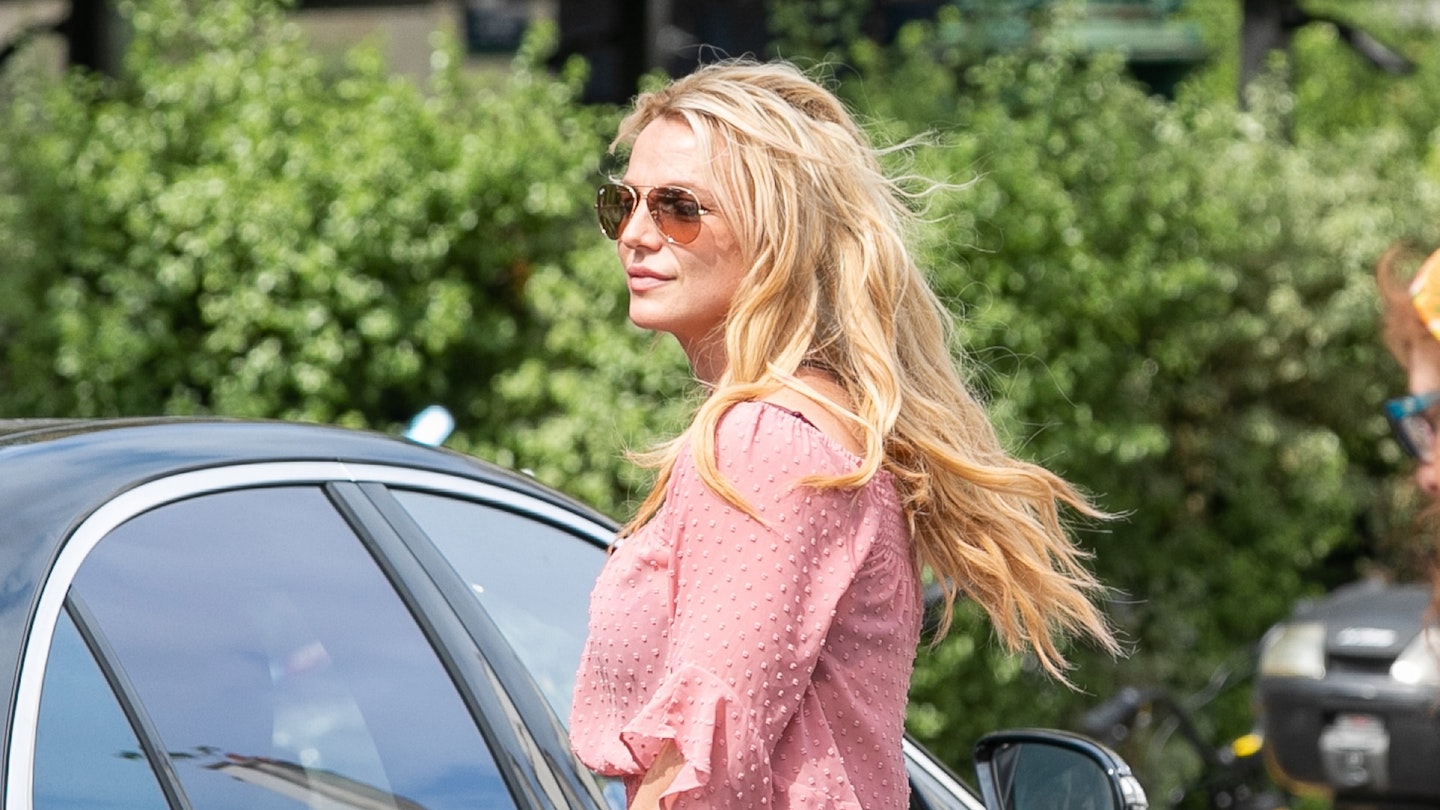Britney Spears has responded to concerns for her welfare after paramedics were called to Chateau Marmont, a boutique hotel in Los Angeles, last night. The 42-year-old singer was pictured leaving the hotel barefoot with a blanket wrapped around her but says emergency services were unnecessary as had simply fallen and twisted her ankle after doing a leap in the living room of her suite.
‘Paramedics came to my door illegally, of course cause this huge scene which was so unnecessary and all I needed was ice,’ Britney said in a video on Instagram showing her swollen ankle.
Prior to Britney’s post, TMZ reported that the 42-year-old was involved in a ‘huge fight’ with boyfriend Paul Soliz and hotel guests thus called emergency services. They claim that guests feared she was having a mental breakdown and that she was ‘out of control’. They acknowledged Britney did not leave in an ambulance and instead left with her security, but without Soliz.
While TMZ implied paramedics were called to deal with a mental health crisis, a spokesperson for the Los Angeles Fire Department has since confirmed to Sky News that paramedics were dispatched after a report that an adult female had been injured.
‘I would like respect at this time for people to understand I am getting stronger every day,’ Britney said in another post on Instagram. The paparazzi pictures shared of the incident are eerily reminiscent of those taken in 2007 that led to her temporary psychiatric hold and thus the 13-year conservatorship that we have since learned was extremely invasive. Now then, social media is awash with people comparing the incidents.
Britney has since accused her mother, Lynne Spears, of ‘being involved’ and says she was ‘set up just like she did way back when.’ ‘I haven’t talked to her in 6 months, and she called right after it happened before the news being out,’ Britney said. ‘I can’t stand her!!! I honestly don’t care I will say it.’
Now, as commentators react to the story, many are questioning the right way to respond online given Britney’s history. After the New York Times documentary Framing Britney Spears laid bare how influential tabloids were in negative perceptions of her after her highly publicized mental health issues in 2007, and the exploitative nature of such commentary, it’s integral to view stories such as the above with a thoughtful lens.
Because the media landscape has changed drastically since 2007: tabloids are no longer the only showbiz gossipers in this industry, social media commentators are too just as powerful. A viral TikTok, tweet or IG post can quickly surpass the readership of a showbiz story, and with millions of voices online able to directly comment on Britney’s public Instagram or just into the ether, the weight of that feels even more powerful that the many of celebrity tabloids of the noughties.
That means we all, individually, have a responsibility to approach conversations about mental health and celebrity culture with caution. In an ideal world, we would all ignore it, right? We would see a story that feels exploitative, and all universally decide not to engage. But unfortunately, that is not the world we live in. The global entertainment and media market is a trillion-pound industry, all of us participants in it as soon as we click on a story or choose to entertain some idle celeb gossip. And with social media, commentary will seemingly never go away.
In fact, those of us that feel obliged to ignore a story and respect a celebrity’s privacy are such the minority that in the case we did just that, the void would be filled by the much louder voices who troll and belittle celebrities. That doesn’t mean we have an obligation to comment, but it does mean that when we can see conversations happening that feel wrong or insensitive, offering a supportive, thoughtful perspective instead is okay. It might be preferable to ignore, but if we’re being realistic, in a world full of commentators, ignoring a story can also leave space for the most negative reactions to thrive.
Of course, as with any story about Britney Spears, the way some people are responding to this latest development feels wrong. Comparing pictures of her from 2007, making sensationalist assumptions about her mental health, stigmatising the notion of a ‘breakdown’ (when in reality, anyone with mental health issues will go through highs and lows throughout their life – it doesn’t mean their basic rights should be removed), it’s all feels like we’re repeating the same toxic cycle we saw have devastating consequences in the noughties.
If Britney were to have suffered a mental health crisis, which she has denied, today's reaction would’ve been just as counterproductive and exploitative as it was way back then. So, regardless of how salacious a story is, when it involves mental health, let’s all try and do better with the way we engage in future.
